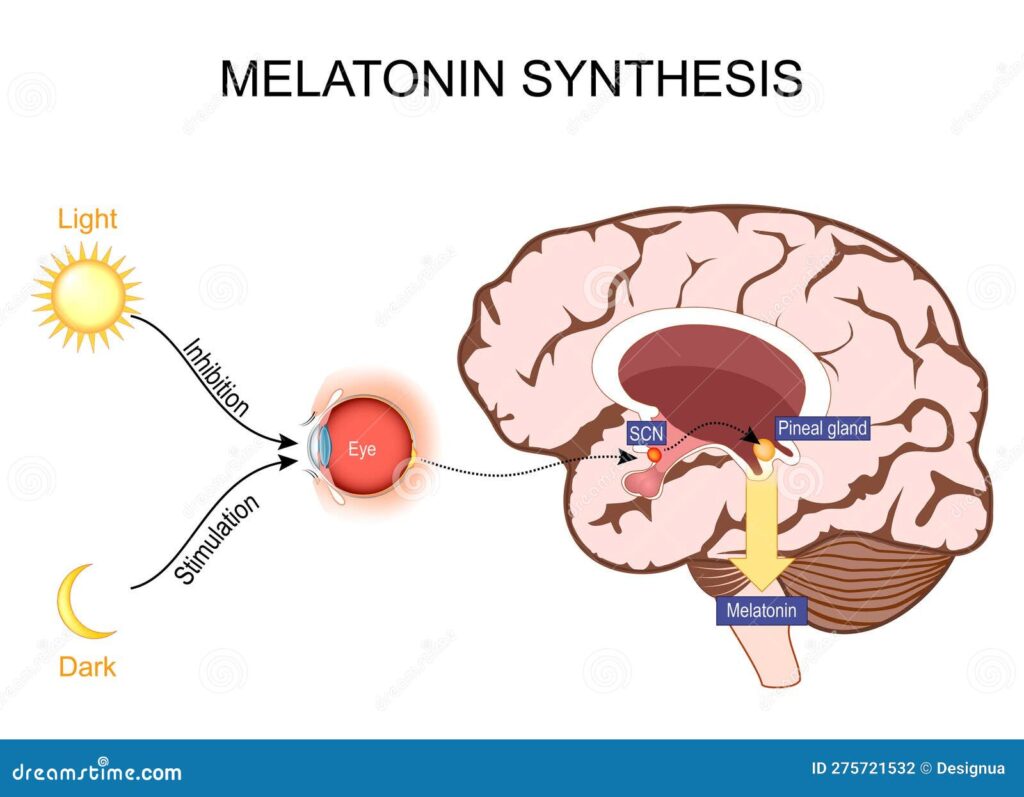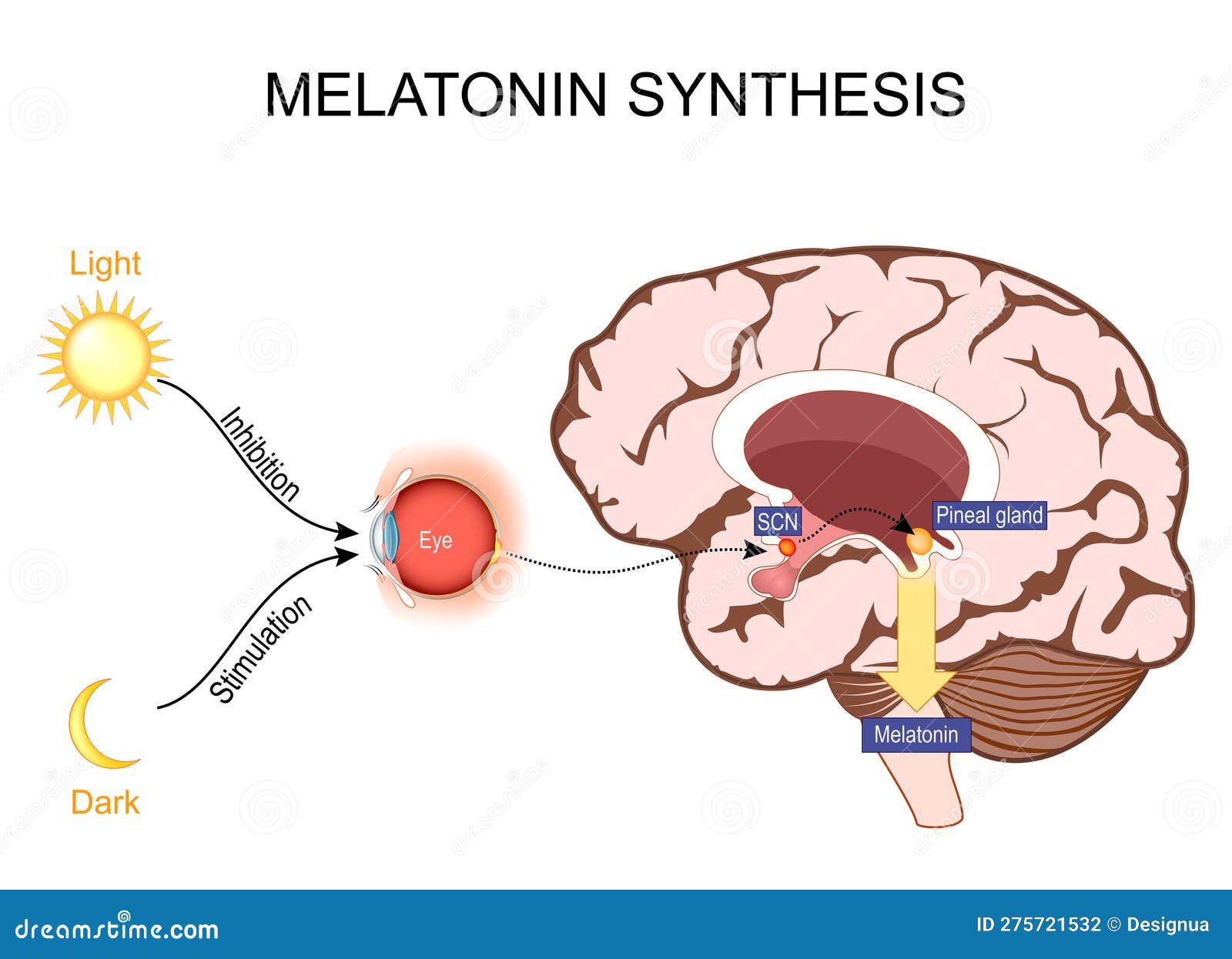
Melatonin for Migraines: Exploring the Potential Benefits and Risks
Migraines are a debilitating neurological condition affecting millions worldwide. Characterized by intense headaches, often accompanied by nausea, vomiting, and sensitivity to light and sound, migraines can significantly impact quality of life. While various treatments exist, many individuals seek alternative or complementary therapies to manage their symptoms. One such therapy gaining attention is melatonin. This article delves into the potential benefits of melatonin for migraines, exploring the scientific evidence, potential risks, and what to consider before using it.
What is Melatonin?
Melatonin is a hormone naturally produced by the pineal gland in the brain. It plays a crucial role in regulating the sleep-wake cycle, also known as the circadian rhythm. Melatonin production increases in the evening, signaling to the body that it’s time to sleep, and decreases in the morning, promoting wakefulness. In addition to its role in sleep, melatonin also possesses antioxidant and anti-inflammatory properties, which may contribute to its potential therapeutic effects in various conditions, including migraines.
The Link Between Melatonin and Migraines
The connection between melatonin and migraines is multifaceted. Several theories suggest how melatonin for migraines might be beneficial:
- Circadian Rhythm Regulation: Disruptions in the circadian rhythm have been implicated in migraine pathogenesis. By regulating the sleep-wake cycle, melatonin may help stabilize the circadian rhythm and reduce the frequency of migraine attacks.
- Neurotransmitter Modulation: Melatonin influences the release of neurotransmitters, such as serotonin and dopamine, which are involved in pain perception and migraine development.
- Antioxidant and Anti-inflammatory Effects: Oxidative stress and inflammation are thought to play a role in migraines. Melatonin’s antioxidant and anti-inflammatory properties may help reduce these factors, potentially alleviating migraine symptoms.
- Pain Threshold Modulation: Some studies suggest that melatonin may increase the pain threshold, making individuals less susceptible to migraine triggers.
Scientific Evidence: Does Melatonin Help Migraines?
Several studies have investigated the efficacy of melatonin for migraines. While the results are promising, more research is needed to confirm its effectiveness and determine optimal dosages.
A systematic review and meta-analysis published in the journal Headache found that melatonin was significantly more effective than placebo in reducing migraine frequency. The review included several randomized controlled trials comparing melatonin to placebo or other migraine preventive medications. [See also: Understanding the Different Types of Migraines]
Another study published in the Journal of Clinical Endocrinology & Metabolism showed that melatonin supplementation reduced the number of headache days per month in individuals with chronic migraines. The study also reported improvements in sleep quality and overall well-being. However, not all studies have shown positive results, and some have reported no significant difference between melatonin and placebo.
How to Use Melatonin for Migraines
If you’re considering using melatonin for migraines, it’s crucial to consult with your doctor first. They can assess your individual needs, determine the appropriate dosage, and monitor for any potential side effects. The typical dosage of melatonin for migraine prevention ranges from 3 to 10 mg, taken nightly before bedtime. However, your doctor may recommend a different dosage based on your specific circumstances.
It’s also important to choose a high-quality melatonin supplement from a reputable manufacturer. Look for products that have been tested by a third-party laboratory to ensure purity and potency. [See also: Natural Remedies for Headache Relief]
Potential Risks and Side Effects of Melatonin
Melatonin is generally considered safe for short-term use, but it can cause side effects in some individuals. Common side effects include:
- Drowsiness
- Dizziness
- Headache (ironically, in some cases)
- Nausea
- Irritability
Less common but more serious side effects may include:
- Depression
- Anxiety
- Changes in blood pressure
- Seizures
Melatonin can also interact with certain medications, such as antidepressants, blood thinners, and immunosuppressants. It’s essential to inform your doctor about all medications and supplements you’re taking before starting melatonin. Furthermore, long-term safety data on melatonin for migraines is limited, so it’s advisable to use it under medical supervision.
Who Should Avoid Melatonin?
Certain individuals should avoid using melatonin, including:
- Pregnant or breastfeeding women: The effects of melatonin on pregnancy and breastfeeding are not well-established.
- Individuals with autoimmune disorders: Melatonin may stimulate the immune system, potentially exacerbating autoimmune conditions.
- Individuals with bleeding disorders: Melatonin may increase the risk of bleeding.
- Individuals with severe liver or kidney disease: Melatonin metabolism may be impaired in these individuals.
Melatonin vs. Other Migraine Treatments
Melatonin for migraines is often considered a complementary or alternative therapy. It should not replace conventional migraine treatments prescribed by your doctor. However, it can be used in conjunction with other medications or therapies to help manage migraine symptoms. Other common migraine treatments include:
- Pain relievers: Over-the-counter or prescription pain relievers, such as ibuprofen, naproxen, or triptans, can help alleviate migraine pain.
- Preventive medications: Medications such as beta-blockers, calcium channel blockers, antidepressants, and anti-seizure drugs can help reduce the frequency and severity of migraine attacks.
- Lifestyle modifications: Identifying and avoiding migraine triggers, such as stress, certain foods, and lack of sleep, can also help prevent migraines.
The Future of Melatonin Research for Migraines
Research on melatonin for migraines is ongoing. Future studies will likely focus on:
- Determining the optimal dosage and duration of melatonin treatment
- Identifying specific subgroups of migraine sufferers who are most likely to benefit from melatonin
- Investigating the mechanisms by which melatonin exerts its effects on migraines
- Comparing melatonin to other migraine preventive medications
Conclusion
Melatonin for migraines shows promise as a potential complementary therapy. While the scientific evidence is encouraging, more research is needed to confirm its effectiveness and determine optimal usage. If you’re considering using melatonin for migraine prevention, it’s essential to consult with your doctor to discuss the potential benefits, risks, and interactions with other medications. Remember that melatonin should not replace conventional migraine treatments but can be used as part of a comprehensive migraine management plan. By taking a proactive approach and working closely with your healthcare provider, you can effectively manage your migraines and improve your quality of life.
The potential of melatonin for migraines is an exciting area of research, and as our understanding of this hormone and its role in migraine pathophysiology grows, we can expect to see even more tailored and effective treatment strategies emerge. Always prioritize a well-rounded approach to migraine management that includes lifestyle adjustments, conventional medical treatments, and carefully considered complementary therapies like melatonin.

